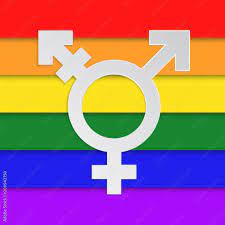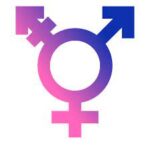The question "Are trans women female?" has sparked intense debate across various spheres, from social media to academic discussions. Understanding this question requires delving into complex concepts of gender identity, biological sex, societal norms, and personal experiences. As we navigate this topic, it’s essential to adopt a compassionate lens, recognizing that the journey toward gender understanding is deeply personal for many individuals. In this article, we will explore the nuances of gender identity, the experiences of trans women, and the societal structures that shape our understanding of femininity.
Understanding Gender: What Does "Female" Really Mean?
The term "female" traditionally refers to biological characteristics, such as reproductive anatomy and chromosomal patterns (XX chromosomes). However, the definition of female is evolving to accommodate a broader understanding of gender. Gender is increasingly recognized as a spectrum, encompassing not just biological markers but also personal identity, social roles, and cultural expectations. People now see "female" as a complex interplay of identity and experience rather than a rigid classification based solely on biology.Pills That Have Estrogen
Moreover, the concept of female identity varies by culture and context. Some cultures have long recognized multiple genders, challenging the binary views of male and female. In modern discussions, understanding "female" often involves acknowledging the lived experiences of individuals who identify as women, including trans women. Thus, when we ask if trans women are female, we must consider the broader social and personal implications of this question.
The Trans Experience: More Than Just a Gender Identity
For many trans women, being female is about more than just a label; it’s about living authentically in a body that aligns with their inner selves. The trans experience encompasses a journey of self-discovery, often filled with challenges, triumphs, and the pursuit of acceptance. Many trans women face significant obstacles, including societal stigma, discrimination, and the need for social and medical transition. Their identities are not merely a matter of preference but are fundamental to their well-being and self-perception.
Moreover, the experience of being a trans woman can differ dramatically based on various factors, including race, economic status, and geographic location. While some trans women may have the privilege of access to resources for transitioning, others may face systemic barriers that complicate their journeys. Understanding the trans experience requires a nuanced perspective that acknowledges these individual stories and the complexities involved.
Biological Sex vs. Gender Identity: Key Differences Explained
Biological sex and gender identity are often conflated, leading to misunderstandings about what it means to be female or male. Biological sex typically refers to physical attributes, such as chromosomes and reproductive organs, which are often categorized as male or female at birth. In contrast, gender identity is a deeply held sense of oneself as male, female, both, neither, or somewhere along the gender spectrum. For trans women, their gender identity aligns with being female, even if their biological sex assigned at birth does not.
This distinction is crucial for fostering a more inclusive understanding of gender. While biological sex may inform societal perceptions, it doesn’t determine one’s identity. The recognition that gender identity can diverge from biological markers invites a broader conversation about acceptance and respect for individuals as they define themselves. It encourages society to look beyond rigid classifications and embrace the diverse ways people experience their gender.
How Society Defines Femininity and Female Identity Today
Societal definitions of femininity and what it means to be female have evolved dramatically over time. Historically, femininity has often been tied to specific traits, behaviors, and roles, such as nurturing qualities, appearance, and domestic responsibilities. However, contemporary discussions challenge these traditional notions, recognizing that femininity can manifest in countless ways, transcending stereotypes and societal expectations.
In today’s world, many women, including trans women, are redefining femininity on their own terms. This shift allows for a more inclusive understanding of what it means to be female, encompassing a range of expressions and identities. The expansion of societal definitions of femininity encourages individuals to embrace their unique experiences and fosters a culture of acceptance, where all women can find their place.
The Role of Hormones in Trans Women’s Lives and Bodies
Hormone replacement therapy (HRT) plays a significant role in the lives of many trans women, helping them align their physical appearance with their gender identity. HRT can induce changes such as breast development, redistribution of body fat, and softening of the skin, which are often associated with femininity. These physical changes can enhance feelings of self-acceptance and improve overall mental health for many trans women.
However, the decision to pursue hormone therapy is deeply personal and can vary based on individual needs and circumstances. Not all trans women choose or can access HRT, and their identities remain valid regardless of their medical choices. Understanding the role of hormones in trans women’s lives highlights the diverse pathways individuals may take in their journeys, emphasizing that being female is not solely about physical traits but also about identity and lived experience.
Legal Recognition: The Fight for Trans Women’s Rights
Legal recognition of trans women as female is a critical issue encompassing rights, protections, and societal acceptance. Many countries and regions have made strides in recognizing gender identity in legal documents, such as driver’s licenses and passports. However, this is not universal; in some places, trans individuals face significant barriers to legal recognition, which can lead to discrimination and marginalization.
The fight for trans women’s rights is ongoing and often intersects with broader struggles for gender equality and LGBTQ+ rights. Advocacy groups work tirelessly to push for policies that affirm trans identities and protect against discrimination. Legal recognition is not just about documentation; it’s about validating and respecting the identities of trans women in every aspect of society.
Personal Stories: Trans Women Share Their Journeys
Personal stories from trans women provide invaluable insights into the experiences that shape their identities. Many share narratives of struggle and resilience, recounting their journeys of self-discovery, acceptance, and transition. These stories often highlight the challenges faced in a society that can be unkind and unaccepting, as well as the triumphs that come with living authentically.
Listening to these voices fosters empathy and understanding, allowing others to see the world through their perspectives. Each story is unique, revealing the rich tapestry of experiences that contribute to what it means to be a trans woman. By sharing their journeys, trans women challenge societal norms and inspire others to embrace their identities, regardless of societal expectations.
Moving Forward: Embracing Diversity in Gender Identity
As society grapples with these complex issues, moving forward requires a commitment to embracing diversity in gender identity. The conversation around trans women and femininity is just one part of a larger dialogue about gender, identity, and acceptance. Creating inclusive spaces means recognizing and respecting the myriad ways people express themselves and understanding that identities may not fit neatly into predefined categories.
Embracing diversity in gender identity encourages a culture of acceptance and understanding. It invites individuals to share their stories and experiences, enriching societal perspectives on femininity and identity. By fostering an environment where all identities are celebrated, we can move toward a more inclusive future, where everyone has the opportunity to live authentically and with dignity.
The question of whether trans women are female opens up a rich dialogue about identity, acceptance, and the diverse spectrum of human experience. By examining the intricacies of gender identity and personal journeys, we can foster a more compassionate society that embraces all individuals, regardless of their gender identity. As we continue to learn and listen, let us aim to create a world where everyone feels valued and understood.


